Are you or someone in your family curious about diving while travelling abroad? Mix Hagman is a passionate diver with lots of diving courses and diving trips under his belt. We took the opportunity to ask Mix about how to go about diving while travelling abroad - and which destinations are best when you want to combine diving with exciting experiences on land.
Mix enjoys diving with her husband Stefan, but they both have slightly different perspectives on diving. While for Mix, diving is a lifestyle, Stefan prefers to take it easy and dive from time to time, on holiday and when the water temperatures are comfortable - a so-called "coctail diver" according to Mix. Together, they think they've found the best destination for scuba diving while travelling abroad, which also offers exciting activities on land.
Innehållsförteckning
Can you tell us a bit about yourself?
I am 55 years old and work as a brand manager and teacher at Berghs International. Family: My husband Stefan and our dog. I live on Nytorget in Stockholm. Summers and weekends: in the archipelago in a sports cabin with garden and crops. Winters: three weeks in the middle of winter we spend underwater. Last 10 years in Mexico.
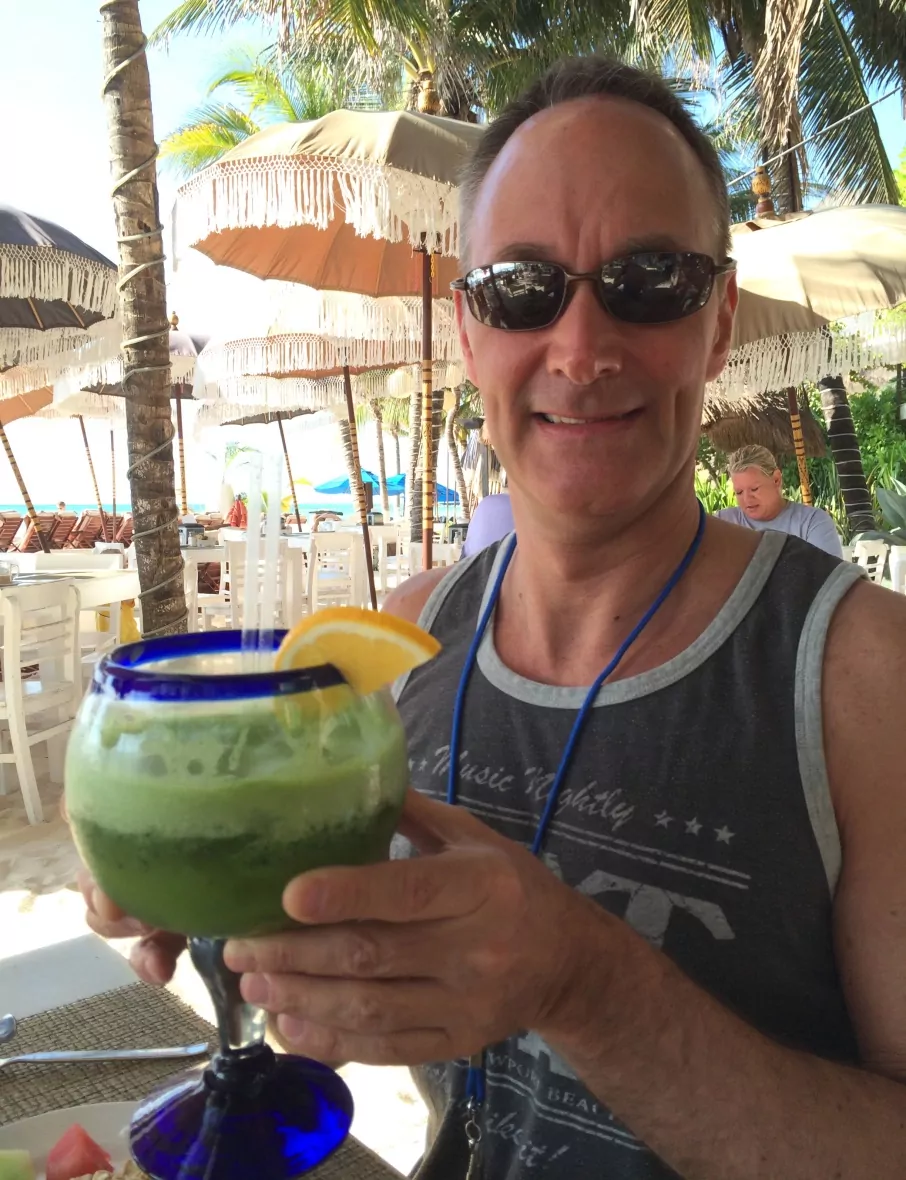
Can you tell us about your interest in diving?
I come from a family of diving pioneers and grew up in the 60's and 70's watching my mum, uncle and stepson jump in with scuba tanks on their backs. My uncle was one of the initiators of the Swedish Sports Diving Association. I dived myself for the first time in 1982, but then it was just a lot of trial dives until 2004 when I took a certificate.
Everything that happens on the ground is really just surface intervals.
For me, diving is a lifestyle. I have another life in another world underwater and feel both deeply (!) grateful and privileged to be part of that biotope. Everything that happens on the ground is really just surface intervals.
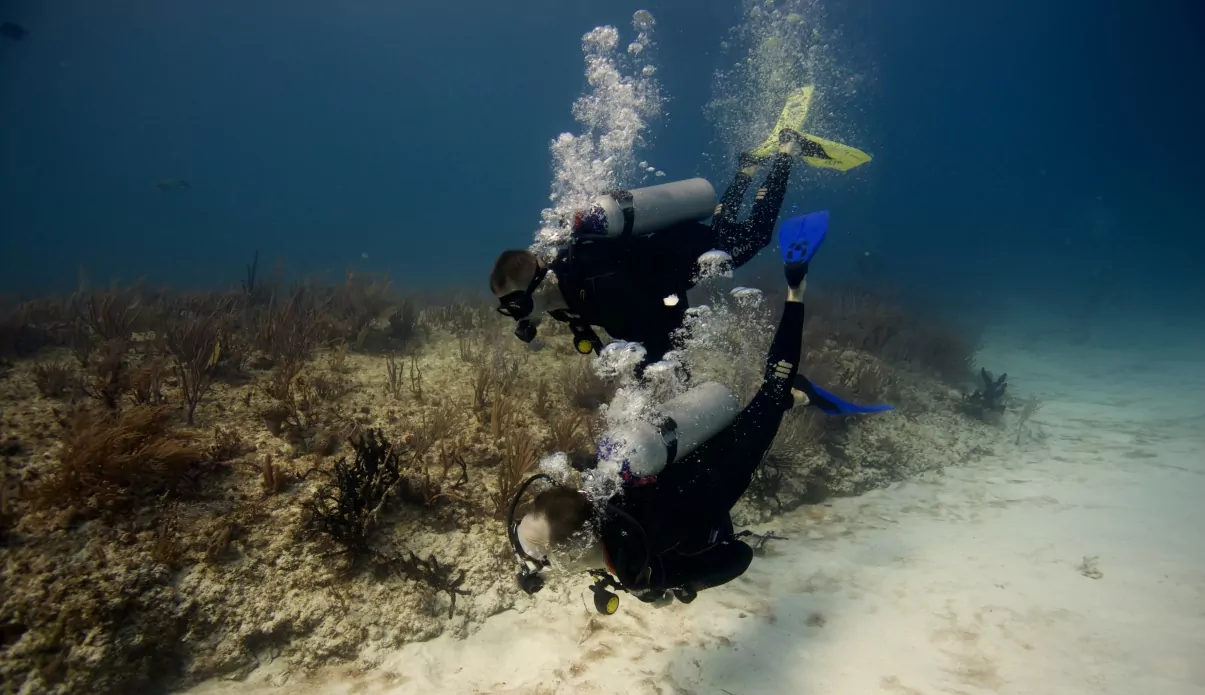
Which diving licences do you have and which ones do you think you need?
I have OW, AOW, RD, Nitrox, Sidemount, DM, EFRI and OWSI. Many abbreviations, I see. Open Water, Advanced, Rescue diver, Nitrox, Sidemount, Dive Master, Emergency First Response Instructor, Open Water Scuba Instructor. You don't need more than an OW-cert to be able to dive well abroad.
If you have Advanced, you have access to a little more diving experiences because you have training for deeper dives. With OW-cert you can dive to 18 metres, and that is enough for a lot of reef dives where most of the exciting stuff happens between 5-15 metres down. AOW takes you down to 30 metres.
If you dive in Sweden, it is almost a prerequisite to know how to dive in a dry suit. It is possible to dive in a wetsuit for a short time in the year. The problem is that as the water temperature rises and it becomes more comfortable to dive, so does the visibility. The best visibility is in spring and autumn ... and then it's cold. But dry suits mean that there is plenty to experience at home. If you expand to Scandinavia, we have plenty of dive sites!
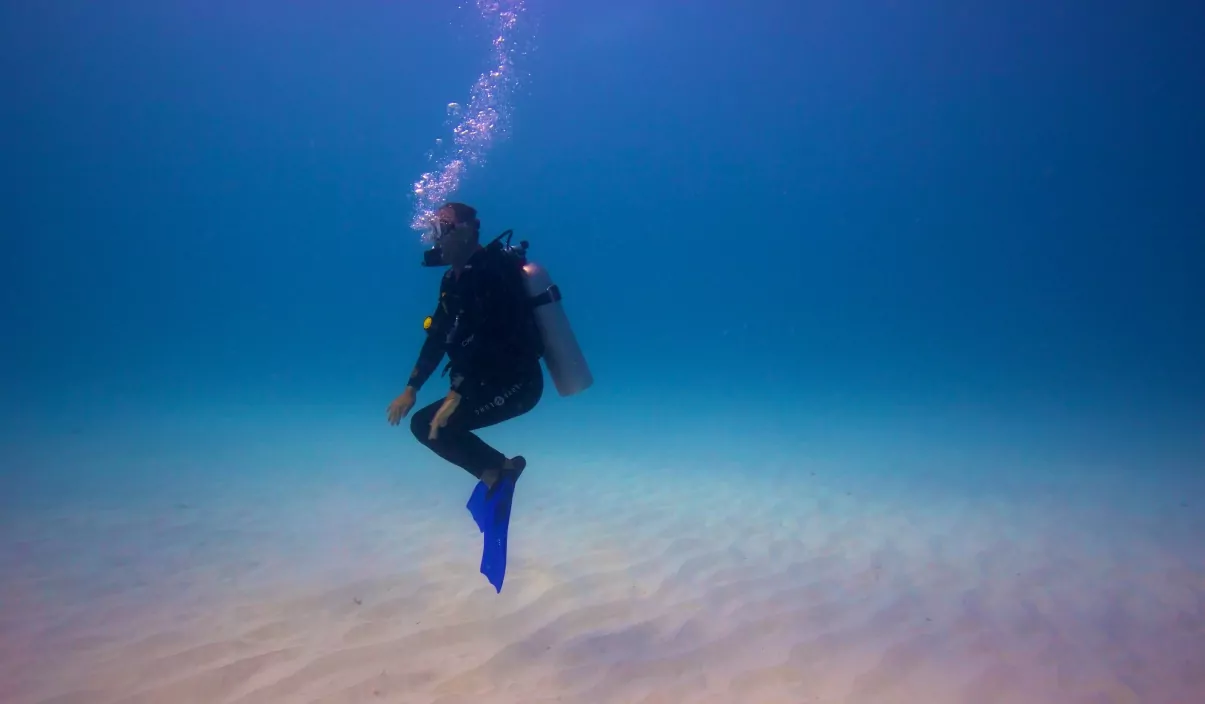
If you want to try scuba diving while travelling abroad but don't have a diving licence yet - what do you do?
Referral! The best way! This means that you do theory and pool in Sweden with a serious dive centre and get a good knowledge base to develop from. You find a good dive centre at your destination, contact them before you arrive so that they can confirm that you can do the outdoor dives in the OW course during your stay there. So your course is split between two dive centres and you will receive your certificate if you complete the final part of the course on site abroad and can continue diving as a certified diver on your holiday.
Some dive shops are just some little cool guy with some half-shaky infrastructure, poor equipment and, at best, a cheerful disposition.
The advantage of doing some of it at home is that you build a relationship with divers who can act as "mentors" later on. You are more likely to develop in the sport if you are close to the resources. If you want to do the full certificate abroad, I think it's important to use a reputable dive centre.
Abroad, the quality of the clubs is more varied. Some dive shops are just some little cool guy with some half-shaky infrastructure, poor equipment and, at best, a cheerful disposition. It can be hard to distinguish these from the shoppers who are really good. Rating aids like Trip Advisor can be really misleading because the writers have nothing to compare with.
But there are a few things you can look for. I usually look for the training levels of the instructors and the range of courses. If they train at a professional level, they're more likely to be serious than if it's just a DiveMaster running the place. If the centre has a 5-star status, it is probably better organised. So ... call a large, reputable dive centre if you're taking courses abroad. Do your research, email, ask, check. Don't take the first one on the beach!
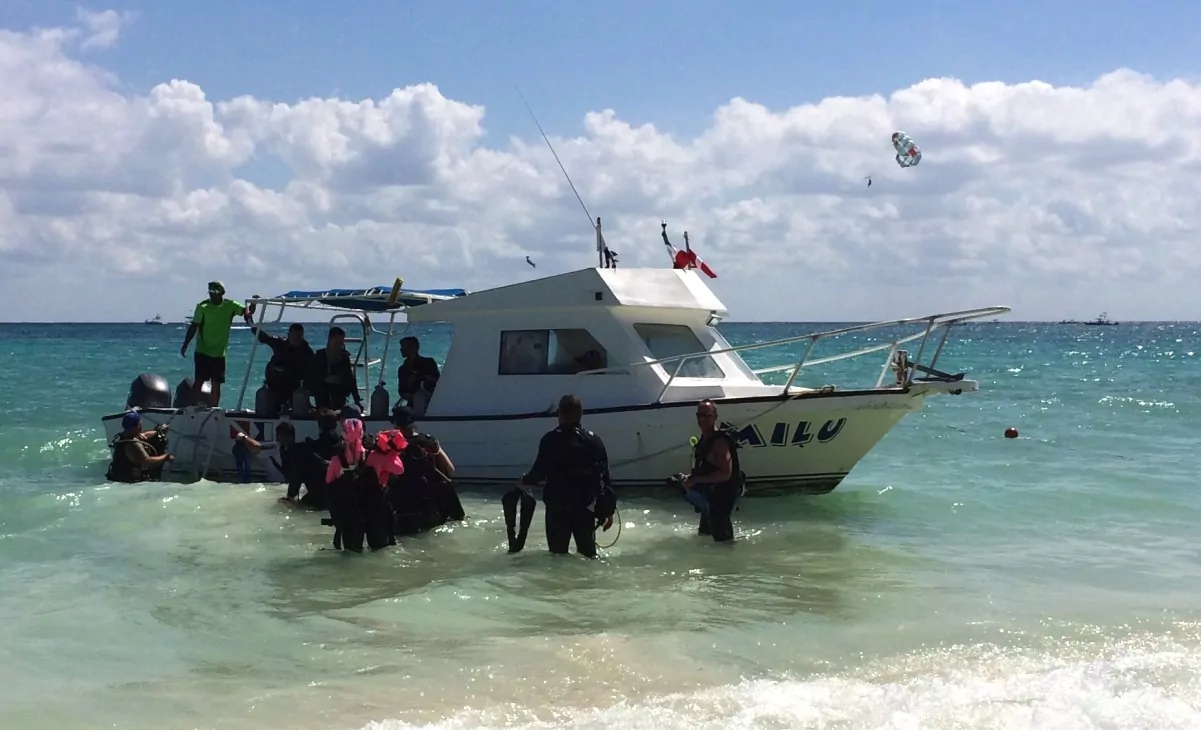
How can you choose a destination if some members of your family want to dive - and others don't?
Good question. We can start to distinguish between pure diving destinations and places where there is diving and other activities. I would say that a trip to a "liveboard", that is, a boat that is only for diving and goes between different dive sites without going ashore in between, will be a very boring holiday for a non-diver.
Then there are destinations such as the Maldives where a non-diver has a wonderful little coral island plus what the hotel has to offer to enjoy while others dive... but not much more. Destinations such as Cairns and the Great Barrier Reef, many places in the Caribbean such as the ABC Islands offer both great onshore experiences for diving while travelling abroad.
In destinations where there are good activities both on land and underwater, I find it works best to do a morning dive and then meet up with the rest of the group for afternoon activities.
On the days that you dive all day, for example if you are going to a dive site a little further away, you make sure to plan it so that the rest of the group gets a lovely beach day or goes on a separate excursion. In any case, it will be easier if you can have two independent teams.
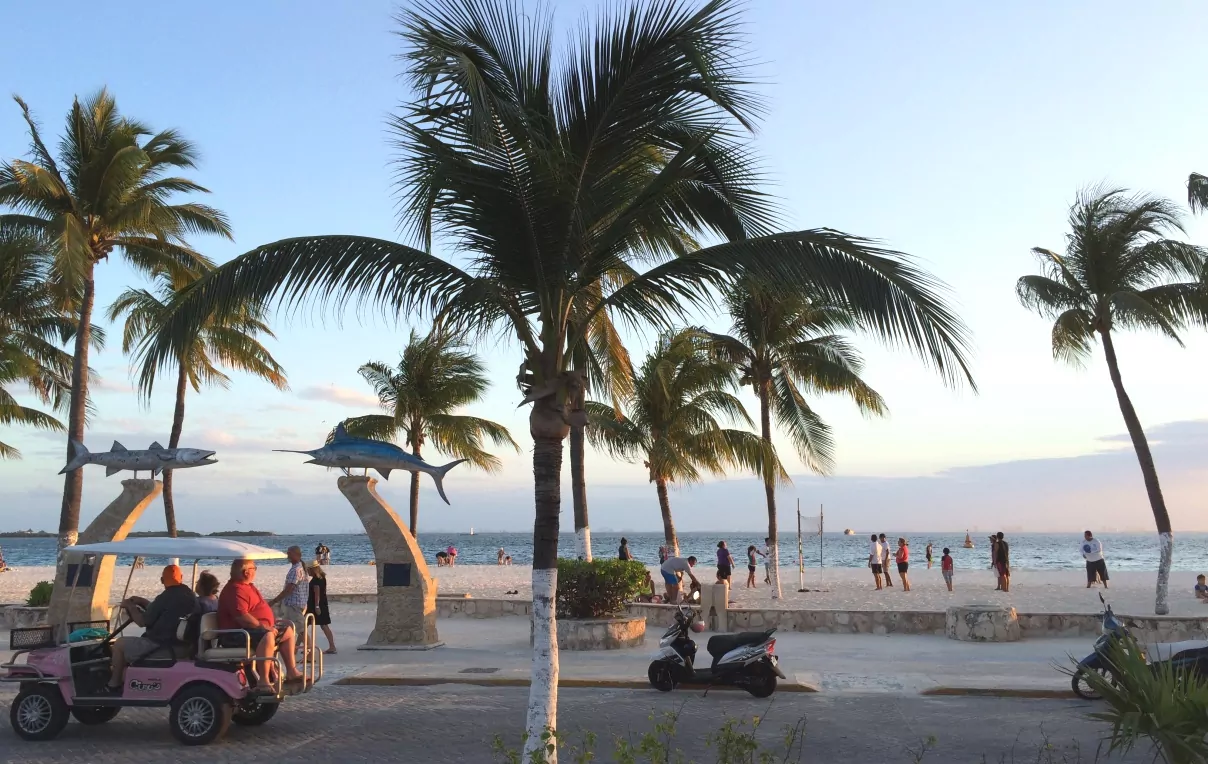
Which destination do you recommend for both good diving and 'above water' experiences?
I am a big fan of Mexico for this very reason. Yucatán has a very varied diving and some world unique dive sites that you do not want to miss as a passionate diver. At the same time, Yucatán is very developed in terms of infrastructure for tourism through decades of large flows of holidaymakers from the US and Canada. This means that accommodation, food, land activities, shopping, entertainment, opportunities for sports and health activities ... it is possible to realise a lot EXCEPT the incomparable diving.
I'm currently organising a diving safari in February 2018 together with Dive Travel Specialists. It will be an introduction to the Yucatán's finest diving - a smorgasbord of extras. And a flexible package to suit everyone - advanced divers, beginners and non-divers.
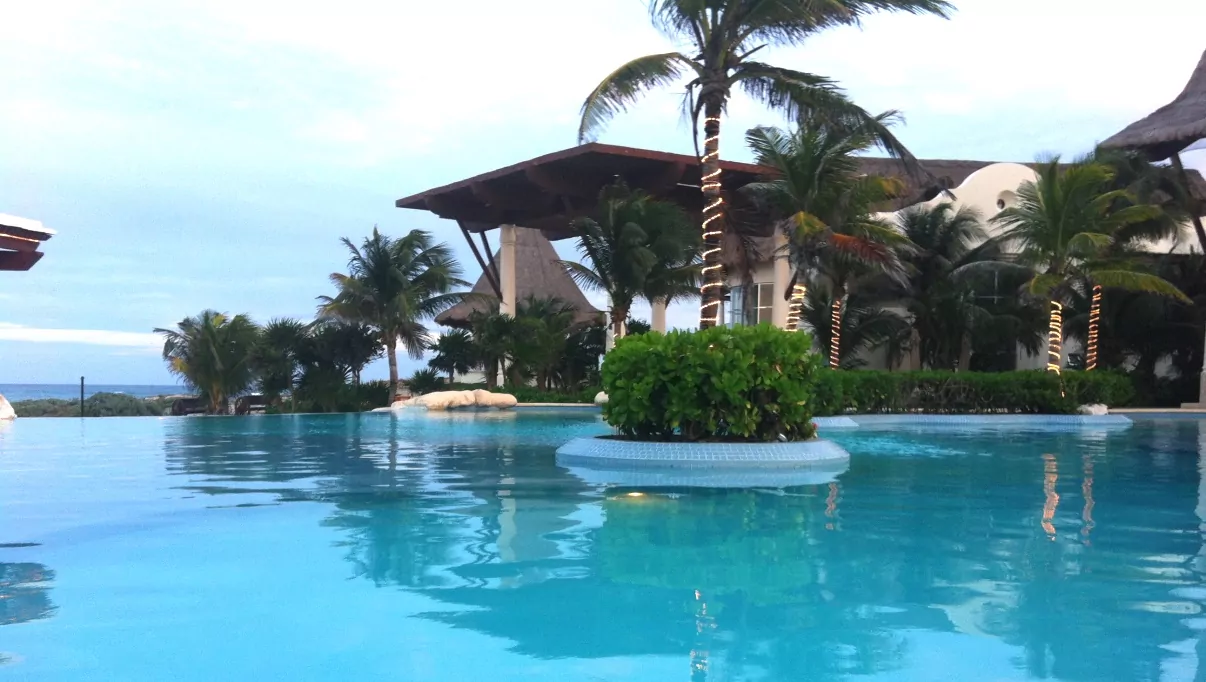
Is there a diving destination you dream of?
There is so much to do. I am a bit hooked on further education and want to take courses for cave diving, wrecks, depth, rebreather and so on. As soon as you take a new course, a new opportunity opens up.
Destinations: Palau, back to the Barrier Reef now that I can dive deeper and longer, maybe with an Explorer on my back (semiclosed rebreather), Utila and Roatan in Honduras, the ABC islands... The special thing about diving is that there is actually just as much to do as you want. It's more time and money that sets the limits for great diving on your trip abroad.
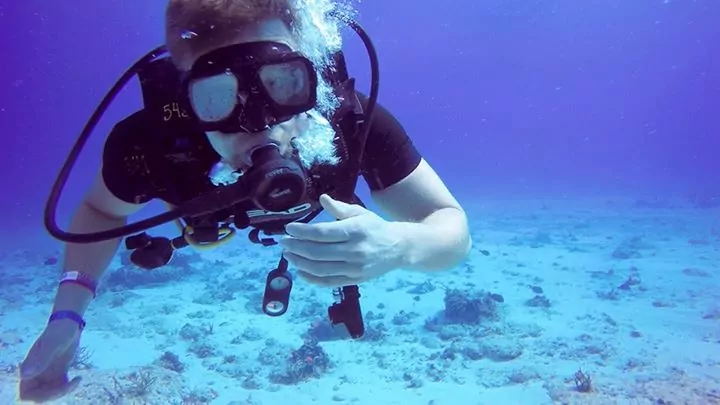
Read more about diving safaris in Mexico
We thank Mix Hagman for many wise tips on diving abroad! If you are curious about the diving safari in Mexico that Mix is helping to organise, you can look at the trip's website.
The trip goes to Mexico's most tropical area, the Yucatan, where you'll find beach life, culture, nightclubs, entertainment, good food, luxury, simplicity, sports... and of course a wide range of different diving experiences for all levels from beginner to tech. The diving here offers some truly unique experiences such as diving in cenotes (i.e. deep holes), bull sharks, drift dives along the coast of Cozumel, manatees and crocodiles at Banco Chinchorro. The trip is organised from 4-21 February 2018.
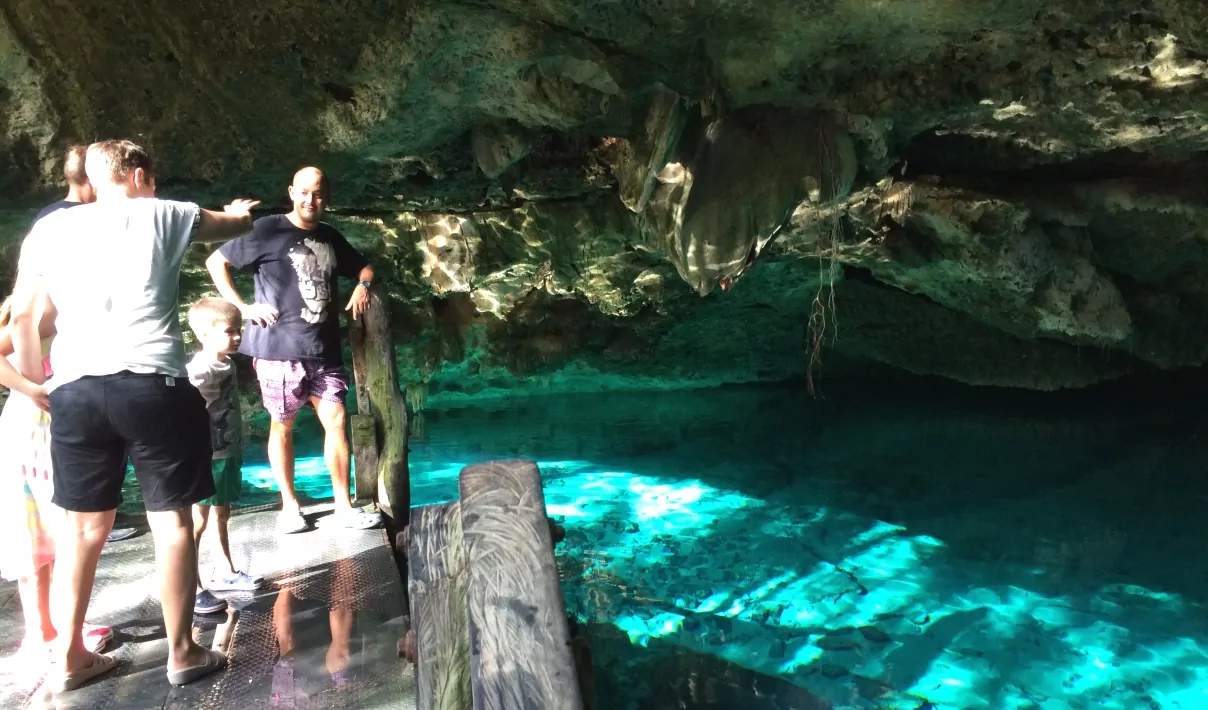

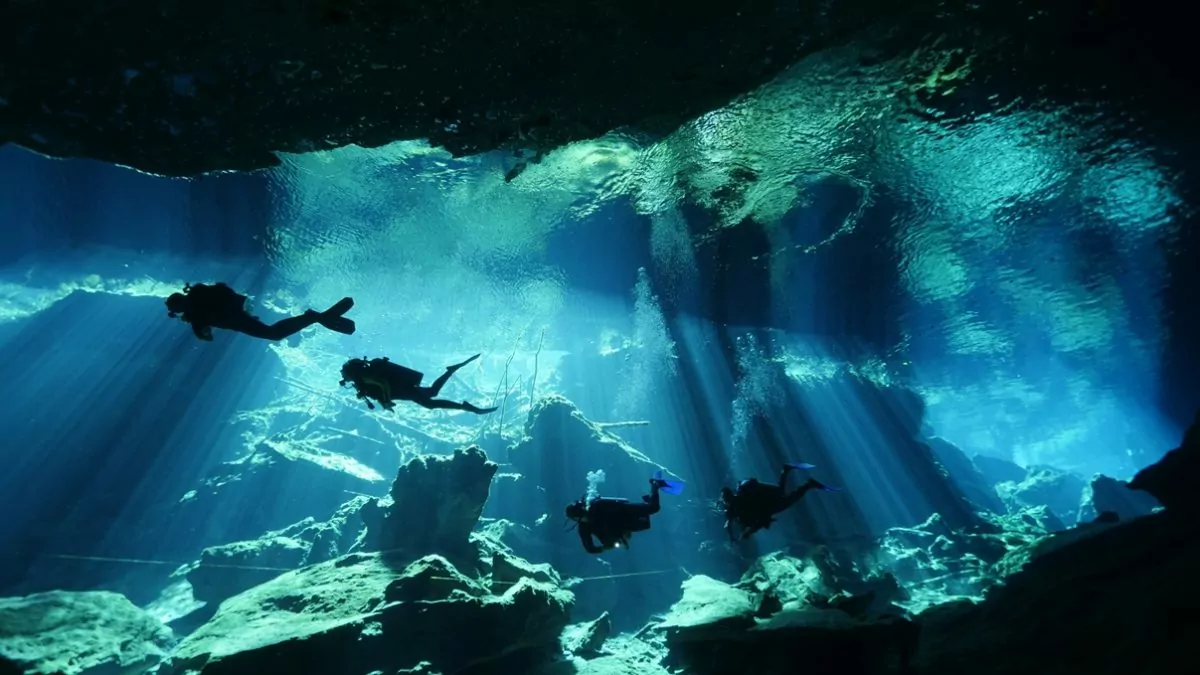










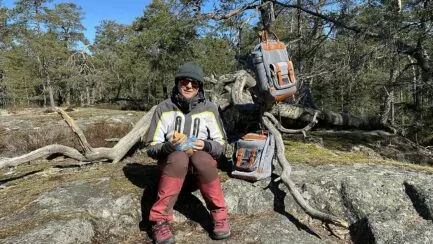


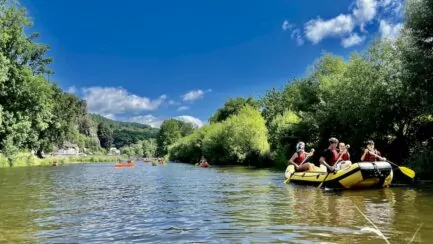
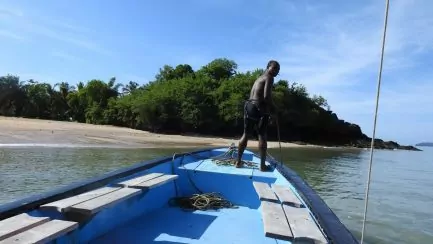




Lena - gott för själen says:
But oh, I would so much like to dive! Love snorkelling so I can well imagine how wonderful it would be to dive!
Hug Lena
02 November 2017 - 6:19
Helena says:
I'm a bit shy about diving myself, but Peter has taken a course this year and when he got to dive in Malta he thought it was fantastic! And it certainly feels like a completely separate, fascinating world!
02 November 2017 - 19:41
Steve says:
"Everything that happens on the ground is really just surface intervals". So that's what life is like for most of us. That doesn't sound very exciting.
If you can say that everything that happens below the surface of the water is only bottom intervals, that doesn't sound very exciting either. However, I have no doubt that diving is extremely fascinating.
02 November 2017 - 10:51
Helena says:
Haha, I also thought that line was so good! You get a little feeling that you are missing something there under the surface ... 😉.
02 November 2017 - 19:43
Marias Memoarer says:
I have always thought that I will never dare to dive. But now that I've dared to snorkel and swim with whale sharks in Australia despite the fear of deep water, I feel that maybe, one day 🙂 .
02 November 2017 - 13:06
Helena says:
Tough of you to both snorkel and swim with whale sharks! I'm a bit of a coward, but Peter likes to dive 🙂.
02 November 2017 - 19:44
BP says:
As I would never dare to dive (not even snorkelling), I enjoy the wonderful pictures instead. Then I actually like Steve's clever comment.
02 November 2017 - 15:18
Helena says:
I'm also scared of diving, but like you I'm fascinated by the pictures. Like a whole other world there under the surface! 🙂
02 November 2017 - 19:45
Ruth i Virginia says:
It looks absolutely marvellous! A whole new world opens up - but not for me.
Likes to be IN water but not UNDER; has almost drowned a couple of times
as a child. Was fascinated with Jacques Cousteau and his "The Silent World". "Undersea world of J.C." was on TV in 1966-76.
Never missed his "Calypso" programme.
Mix and Stefan seem to have solved the problem of finding both the time to
and money for their interesting hobby. Admirable! Wishing you
all the best!
02 November 2017 - 19:29
Helena says:
Nearly drowning sounds tough!!! I'm also reluctant to be underwater, even though I haven't experienced anything unpleasant. But there seems to be a fascinating world below the surface!
02 November 2017 - 19:47